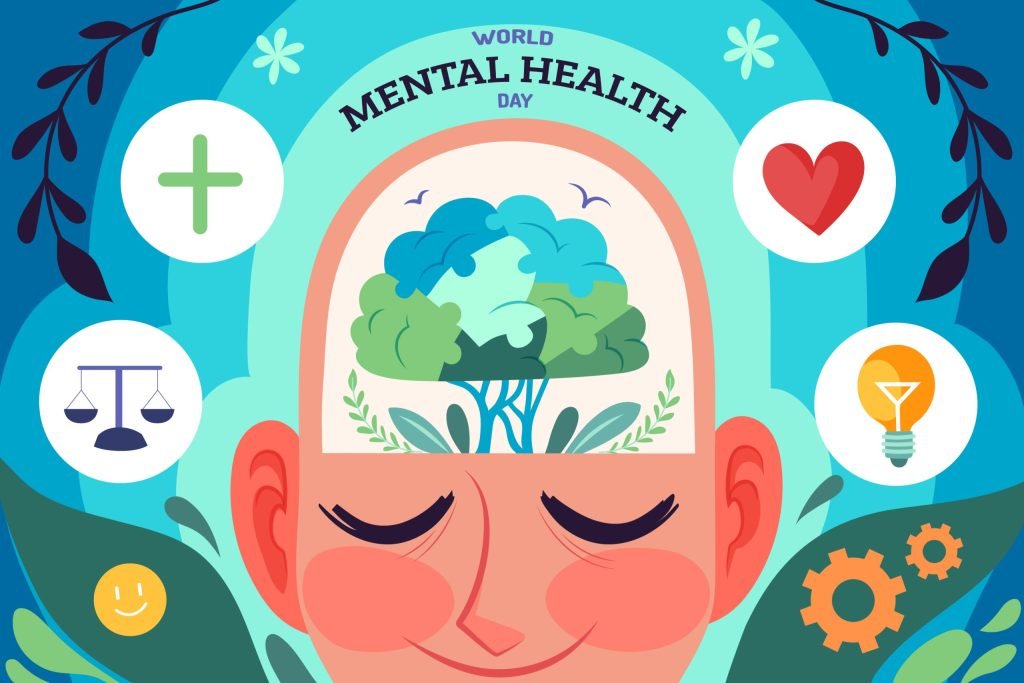Comprehensive Detail How AI Bridging Gaps in Mental Health Treatment
In today’s rapidly evolving world, artificial intelligence (AI) has become increasingly intertwined with our daily lives, making its presence more significant than ever. While it might not lead to a future where humans are entirely reliant on robots, the extensive application of AI in various professional fields raises both opportunities and concerns.
RELATED ARTICLE What Role Could Artificial Intelligence Play in Mental Healthcare?
The implementation of AI in education, for instance, is exemplified by the language model chatbot ChatGPT, developed by Open AI. ChatGPT employs machine learning algorithms to generate responses to various questions and prompts, offering a range of capabilities, from solving math problems to writing essays. However, this technological advancement is not without its caveats, especially when it comes to academic integrity.

Academic dishonesty is on the rise, driven in part by the easy accessibility of AI-generated content. Students and educators are grappling with the challenges of maintaining academic rigor in an environment where AI can create essays, summaries, and even answer exam questions. This trend poses a serious concern for educators, as it can hinder the development of critical research and critical thinking skills, which are vital for personal and professional growth.
Beyond the academic realm, AI chatbots have sometimes been associated with misinformation, discriminatory language, and harassment, especially among minors and other users. These concerns highlight the need for careful monitoring and regulation of AI applications in various sectors (Abrams, 2023).

In the creative industries, AI’s influence is growing, with AI-generated music and art gaining traction. AI-powered image generators have also infiltrated social media content creation, giving rise to AI influencers with no human counterparts. The ethical and safety implications of AI and machine learning technology remain subjects of ongoing debate. Professionals across different fields are apprehensive about the potential of AI to replace their roles (Abrams, 2023).
Despite these concerns, AI’s role in the mental health field offers new horizons for enhancing clinical practice and patient support. While AI lacks empathy and conscious awareness, it has proven invaluable in various aspects of mental health care. Researchers and clinicians have explored the intersection of technology and mental health, recognizing that AI can complement traditional therapy and improve accessibility to mental health services.
AI can significantly assist mental health professionals in administrative tasks such as structuring therapy sessions, identifying relevant themes, and assessing potential risks. Natural language processing technology enables accurate detection and classification of various mental health problems, from depression and stress to sleep disorders and energy levels (Minerva & Giubilini, 2023). This technology has the potential to revolutionize the way mental health assessments are conducted, providing faster and more accurate results.

Moreover, AI can be instrumental in the delivery of structured interventions, such as cognitive behavioral therapy (CBT), which is effective for managing anxiety, sleep issues, and chronic pain (Minerva & Giubilini, 2023). Individuals seeking support can turn to AI-powered chatbots for advice, coping strategies, and exercises to address stress, panic attacks, and other mental health challenges (Marr, 2023).
The COVID-19 pandemic exacerbated the global mental health crisis, underscoring the need for additional mental health resources. The demand for mental health services has outpaced the available workforce of practitioners. AI has stepped in to bridge this gap, making mental health support more accessible and affordable. AI-driven chatbots, for instance, can offer structured interventions that guide patients through CBT exercises and provide emotional support.

RELATED ARTICLE Artificial intelligence in mental health research ,new WHO study on applications and challenges
While AI chatbots are not a substitute for human clinicians, they serve as valuable adjuncts in a world where mental health resources are in high demand. These chatbots can reach individuals who might experience social anxiety or reluctance to engage in traditional face-to-face therapy. The online disinhibition effect suggests that people are more likely to open up and self-disclose when communicating through screens
Some chatbots in the mental health field use human clinician-approved responses to provide treatment and support. They can also be integrated into existing treatment plans, allowing clinicians to monitor their patients’ progress. Organizations like The Trevor Project have embraced AI to identify high-risk individuals and train crisis counselors using simulations (Merritt, 2022).

READ MORE ARTICLES Juvenile Plantar Dermatosis Awareness
As AI continues to play a pivotal role in clinical practice, it is essential to address several key areas. Cultural competency remains a critical consideration, as AI may not be as inclusive as human clinicians experienced in working with diverse populations. Moreover, concerns about informed consent and patient data privacy must be carefully navigated, as AI-generated responses can vary, potentially impacting clinical validity. This variability is particularly concerning for individuals at higher risk of self-harm or suicidal ideation
In conclusion, the integration of AI into the mental health field represents a significant milestone. Psychologists view AI as a supportive tool that complements rather than replaces traditional therapy. As AI continues to permeate our lives and mental health resources remain in high demand, these technological advancements offer hope for more accessible and efficient mental health services. The future of mental health care is marked by collaboration and augmentation, where AI and human clinicians work hand in hand to provide safe and effective support for those in need